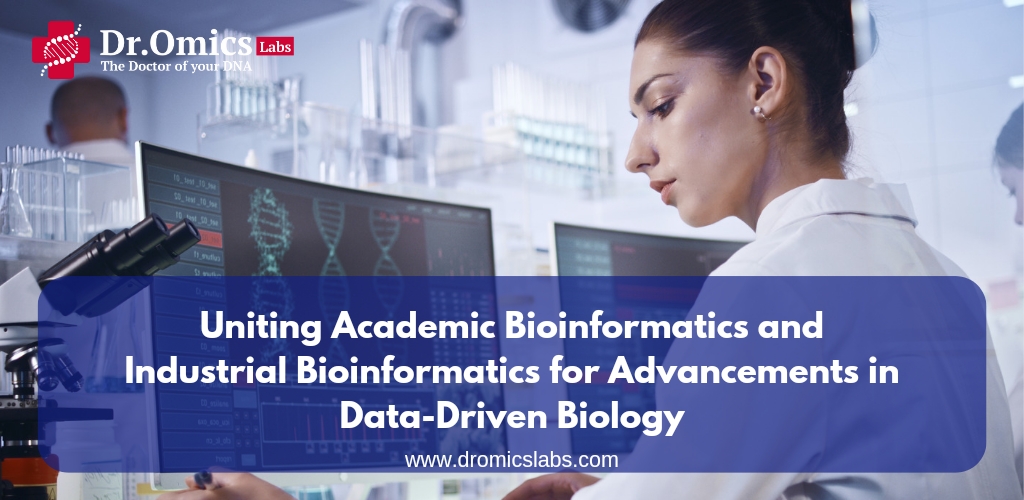Bioinformatics is an exciting and rapidly evolving field that combines biology, computer science, mathematics, and statistics to solve complex biological problems. Bioinformaticians use computational tools and methods to analyze large-scale biological data, such as DNA sequences, gene expression, protein structures, and metabolic pathways. Bioinformatics has applications in various domains of life sciences, such as genomics, proteomics, pharmacology, biotechnology, and medicine.
If you are interested in pursuing a career in bioinformatics, you may wonder what skills and qualifications you need to succeed in this field. In this blog post, we will outline some of the core skills that are essential for bioinformaticians, as well as some resources to help you learn and improve them.
Bioinformatics Skills
Bioinformatics skills are the technical skills that enable you to use various bioinformatics tools and software to perform data analysis and interpretation. These skills include:
- Sequence alignment tools: These are tools that allow you to compare and align biological sequences, such as DNA, RNA, or protein sequences, to identify similarities and differences. Some of the popular sequence alignment tools are Blast, BLAT, Clustalw, and Bioedit.
- Genome analysis tools: These are tools that help you to manipulate and analyze genomic data, such as sequencing, assembly, annotation, and variation. Some of the widely used genome analysis tools are the Genome Analysis Toolkit (GATK), samtools, and Ensembl.
- Next-generation sequencing tools: These are tools that enable you to process and analyze data from next-generation sequencing platforms, such as Illumina, Ion Torrent, and PacBio. These tools include quality control, trimming, mapping, quantification, and variant calling. Some of the common next-generation sequencing tools are Partek, Bowtie, and BWA.
- Database search systems: These are systems that allow you to access and query various biological databases, such as GenBank, UniProt, and PDB, to retrieve relevant information and data. Some of the popular database search systems are Entrez, SRA, and BioMart.
Statistical Skills
Statistical skills are the skills that enable you to apply statistical methods and techniques to analyze and interpret biological data. These skills include:
- Statistical software systems: These are software systems that allow you to perform various statistical analyses, such as descriptive statistics, hypothesis testing, regression, and ANOVA. Some of the widely used statistical software systems are SPSS, SAS, and R.
- Statistical programming languages: These are programming languages that allow you to write and execute statistical scripts and programs, as well as create and manipulate data structures, such as vectors, matrices, and data frames. Some of the popular statistical programming languages are R, Python, and MATLAB.
- Machine learning tools and libraries: These are tools and libraries that allow you to implement and apply machine learning algorithms and models, such as classification, clustering, regression, and neural networks, to biological data. Some of the common machine learning tools and libraries are Mllib and Scikit-Learn in Python, and caret and TensorFlow in R.
Programming Skills
Programming skills are the skills that enable you to write and debug code, as well as use various programming languages and environments, to develop and implement bioinformatics tools and applications. These skills include:
- Programming languages: These are languages that allow you to create and execute instructions for computers to perform specific tasks. Some of the widely used programming languages in bioinformatics are R, Perl, Python, Java, and C++1.
- Programming environments: These are software applications that provide features and tools to facilitate programming, such as code editing, syntax highlighting, debugging, and testing. Some of the popular programming environments in bioinformatics are Eclipse, Visual Studio, and Spyder.
- Programming paradigms: These are styles and approaches to programming, such as object-oriented, functional, and procedural, that influence how you design and structure your code. Some of the common programming paradigms in bioinformatics are object-oriented, scripting, and pipeline.
General Biology Knowledge
General biology knowledge is the knowledge that covers the basic concepts and principles of biology, such as cell structure and function, molecular biology, genetics, and evolution. This knowledge is important for bioinformaticians to understand the biological context and significance of the data they are working with, as well as to communicate effectively with biologists and other researchers. Some of the topics that bioinformaticians should be familiar with are:
- Molecular biology: This is the study of the structure and function of molecules, such as DNA, RNA, and proteins, that are involved in the processes of life. Some of the key concepts and techniques in molecular biology are DNA replication, transcription, translation, PCR, and gel electrophoresis.
- Genetics: This is the study of the inheritance and variation of traits, such as eye color, blood type, and disease susceptibility, among organisms. Some of the key concepts and techniques in genetics are Mendelian laws, chromosomes, genes, alleles, mutations, and genetic engineering.
- Genomics: This is the study of the structure and function of genomes, which are the complete sets of genetic material of organisms. Some of the key concepts and techniques in genomics are genome sequencing, assembly, annotation, and comparison.
- Proteomics: This is the study of the structure and function of proteomes, which are the complete sets of proteins of organisms. Some of the key concepts and techniques in proteomics are protein expression, purification, identification, and interaction.
Other Skills
In addition to the technical skills mentioned above, bioinformaticians also need a range of transferable skills, such as:
- Interpersonal skills: These are skills that enable you to interact and collaborate effectively with other people, such as biologists, computer scientists, and statisticians, who may have different backgrounds, perspectives, and goals. Some of the interpersonal skills that bioinformaticians need are communication, teamwork, and negotiation.
- Problem-solving skills: These are skills that enable you to identify, analyze, and solve complex and challenging biological problems, such as finding the cause of a disease, discovering new drugs, or predicting protein function. Some of the problem-solving skills that bioinformaticians need are critical thinking, creativity, and logic.
- Time management skills: These are skills that enable you to plan and organize your work, prioritize your tasks, and meet deadlines. Some of the time management skills that bioinformaticians need are scheduling, multitasking, and self-discipline.
- Organizational skills: These are skills that enable you to manage and maintain large amounts of data, information, and resources, such as files, databases, and software. Some of the organizational skills that bioinformaticians need are data management, documentation, and backup.
Resources to Learn and Improve Bioinformatics Skills
If you want to learn or improve your bioinformatics skills, there are many resources available online, such as courses, books, tutorials, and blogs. Here are some of the resources that we recommend:
- Coursera: This is an online platform that offers courses and certificates in various fields, including bioinformatics. Some of the courses that you can take are Bioinformatics Specialization, Genomic Data Science Specialization, and Python for Genomic Data Science.
- edX: This is another online platform that offers courses and degrees in various fields, including bioinformatics. Some of the courses that you can take are Introduction to Computational Thinking and Data Science, Introduction to Bioconductor, and Data Analysis for Life Sciences.
- Bioinformatics.Org: This is a website that provides information and resources for bioinformatics, such as news, events, jobs, and courses. Some of the courses that you can take are Bioinformatics for Beginners, Python for Bioinformatics, and R Programming for Bioinformatics.
- Bioinformatics Workbook: This is a website that provides tutorials and exercises for bioinformatics, such as sequence alignment, genome analysis, next-generation sequencing, and database search.
- Bioinformatics Review: This is a website that provides articles and reviews for bioinformatics, such as tools, software, books, and blogs.
Conclusion
Bioinformatics is a fascinating and rewarding career that requires a combination of skills and knowledge from biology, computer science, mathematics, and statistics. By learning and improving these skills, you can enhance your bioinformatics performance and potential, as well as expand your career opportunities and prospects. We hope that this blog post has given you some insight and guidance on the core skills for bioinformatics jobs, as well as some resources to help you achieve them.




